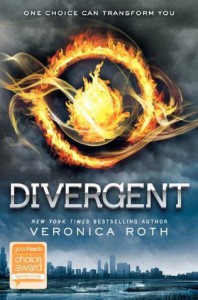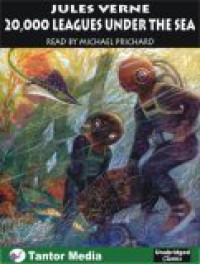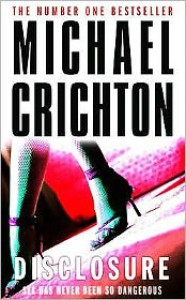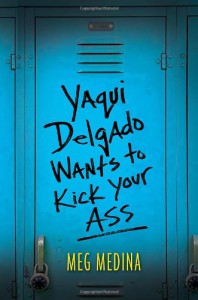A Literary Mind Trip


For me “The Beach” does not fall into any specific genre. I think it is part philosophy, horror, thriller and adventure story. It is also funny as hell.
Richard and his friends find a secluded beach in Thailand with a community of hippies. Richard is a young backpacker on vacation when he finds the mythical beach. The inhabitants on the island live there secretly but let Richard and his companions join them.
On the camp there is a longhouse and huts scattered about. Everyone is put in a work division. They swim during their free time. They play soccer. They play video games. They smoke copious amounts of dope. Families and a life back home don't seem to exist.
A barred off island with no rules seems like paradise. It also reads like paradise. When fishing at night Richard sees phosphorescence glowing underwater. One day after getting lost on the island he is surrounded by a troupe of monkeys who wrangle food out of his hand.
Their island is next to another island with a dope field guarded by a group of armed Taiwanese. Richard notices his camp seem less scared of the guards than their community being discovered. This self-containedness takes an even darker turn when most of the camp decide to leave a kid dying from a shark attack than risk getting caught.
Throughout his stay Richard can’t stop the recurring image in his head of a dead man he encountered before his journey. He calls him “Mister Duck.” My interpretation is that Duck is his conscious, a way to cope with the unraveling of the utopia he thought he found. More and more he is suffering from deindividuation, losing his voice and his self.
Garland has spoken little about this book, or at least I could find little he said. Which is a shame. But it might also be wise. I have read him say, when : "I can't lift it up or put it down because it is what it is."
I like that, because it is simply put. Any art is subjective, because the interpretation belongs to the beholder. So I see it like this. I have lived somewhere in Garland's story before. I have swam similar shores. This book is about youth.
The Beach
Hey Book World,
I cannot get "The Beach" out of my head. If you have read it, let me know. If you haven't, you should.
A review is coming soon. For now I am posting a quote I loved.

 3
3

Reading a book like “Divergent” reminds me what I missed out on during my teen years.
I don’t mean wishing to live in Roth’s faction society. The majority of my reading as a younger person was garbage. I should give myself more credit, but it is hard not to laugh when I remember all the junk I devoured.
I wonder what group I would have fallen into it if I lived in Beatrice’s world. As a teenager I think I would have chosen Amity (with a shade of Erudite). Dauntless would have no appeal to me. I also would not have made it past their first day of initiation.
On to the book.
I love how Beatrice's personality is ambiguous. We don’t know it, nor does she. (yet).
I love how Roth praises and criticizes each individual faction.
I love how Four isn't always likable.
I love the fear simulations.
I love that Beatrice's biggest conflict is with herself.
I love how Roth shows us that conflicts with authority, insecurity, and isolation will emerge anywhere; even if you live in a weird, dystopian faction-led society.
I love what Roth tells us about Divergents.
Everyone is a Divergent, because no one can fit purely into one category. Four aesthetically depicts this when he shows Beatrice all the faction tattoos on his back. “I’d like to think I am one of each ,” he tells her.
And lastly.
These thoughts had been culminating in my head for this character as I turned the last pages. Four's background. Four's personality. Four's relationship with Beatrice. Four's relationship with Dauntless.
"Divergent" is Four’s story as much as Beatrice’s.
 2
2

In honor of Halloween here is my small homage to Edgar Allen Poe.
As a child I was scared by physical things: violence, blood, disfigurement. I grew up and learned that a damaged mind can be just as chilling. Edgar Allan Poe writes about both. He has always focused more on the monsters in our mind than the ones already unleashed.
I like to think the ‘Cask of the Amontillado’ is Poe’s finest (and scariest). Each time I read it I have to supress a smile at the description of Fortunado. Poe mocks him right down to his name. The irony he employs is so scathing I'm convinced Poe should have wrote comedy.
But even if this story reads like poetry, Poe writes an ending so brutal it is hard not to shudder at Fortunado’s pleas for mercy. The efficiency in which Montresor calculates the death of his nemisis still terrifies me. Long after the story ends the cries of the jester seem to echo from somewhere far away..

 1
1

"I treasure and collect books. Now and then I even FABRICATE them for my movies in order to HAVE them in my collection."
-Guillermo Del Toro (filmmaker, writer, artist).

Trying to get through this.


And should I mention it is my fourth attempt?
I was first handed Jules Verne around 9 or 10. My mother bought me the adapted children's version of "20,000 Leagues," and this first version was watered down and easy to get through. I loved the visuals, which helped carry the story for me when I struggled with the text. I still have a vivid portrait of an acutely drawn Captain Nemo at the helm of the Nautilus. This character, the "man of the seas" stayed with me.
Captain Nemo is a purely romantic figure. He lives under the sea, in his constructed “Nautilus.” He speaks several languages, including one of his own invention. He is a scientist, builder, engineer, and artist. Inside the Nautilus there is a museum, a library, an original Picasso painting. He loves Mozart. He tells Pierre Aronnax he is “the richest man in Europe.” Despite this he has withdrawn from the world on land and settled for a life undersea.
As an adult I have tried to get through Verne's original version. I always start wavering at the same place. Specifically a little after Professor Pierre Aronnax and friends are "captured" and begin to adjust to their new lives on the Nautilus. This is when the passages start to read less and less like a literary novel. Here I become lost.
Beyond this point the communications between Nemo and his new crew are mainly scientific. The chapters in the middle are not unlike reading a science textbook for school. Not easy reading, but the transition from literary to technical within chapters is effortless. Verne was Professor Pierre Aronnax, a scientific scholar who could also write.
It is said that this book started the Science Fiction genre. I have been an avid reader since childhood, but it was not until I reached my adult years that I added science fiction to my canon. I think it started with this book. It started with Nemo. My hazy memory tells me the ending reverts back to romantic again, when Nemo’s tragic past is unveiled. I am sure reaching this point will take many readings into the night. I will get there though. For Nemo it is worth it.


I finally got around to watching the final episode of the Daily Show.
Towards the end you might remember Stephen Colbert saying he is 'Sam' to Jon Stewart's 'Frodo.' Stewart, being the weary man who had to traverse the shady political lands while avoiding ego and power ('the ring'), and Colbert, ('Sam'), came along for the ride.
Stewart and Colbert have referenced Lord of the Rings often in their shows and that final 'Sam-Frodo' exchange brought it home for me.
So, yeah I'm going to miss these guys. And I was also reminded of how amazing Tolkien was.

 2
2
My Beach Read (and I regretted it)


I decided to take a sabbatical this summer and read something breezy . I thought a Michael Crichton book would be a good pick. I loved Jurassic Park but wanted to wrap myself in a story with less animal mayhem. I settled for a suspense story about a man falsely accused of sexual harassment by his female boss.
I was disappointed.
Normally I wouldn't put Crichton in the "breezy" category. His scientific background is evident and something I like about him. His plots can be contrived but I like the way he can weave science and suspense.
In this book Tom Sanders works for DigiCom in Seattle, where he is the head of the Advanced Products Manufacturing. He has hopes for a promotion, but is sorely disappointed when he is overlooked. His new supervisor, Meredith Johnson, also happens to be Sanders ex-girlfriend. Sanders shuns her advances one night, and she accuses him of sexual harassment the next day.
The trouble starts when Sanders tries to retaliate. He realizes he is just a cog in a company that has been spinning the wheels right underneath him. Politics trumps hard work. Meredith Johnson is a true phony; an inexperienced bitch with a history of harassment.
This book was published in the early 90's, so it is interesting to get a glimpse of emerging gender politics and the obliteration of the glass ceiling in the workforce. The heavy techno babble can sometimes read like Latin, but is obviously necessary here.
This book isn't classified horror, but there is something about the low moral standards of high executives here that is despairing. No dinosaurs, but the dog-eat-dog corporate world should be classified as an animal kingdom of its own.
Towards the end It felt less like a story then series of vignettes rushing to a conclusion. Vignettes are for soaps, not art. I wanted to see more of Sanders developing into an assertive guy. Filing a lawsuit against your own company takes spine. I wanted to feel his struggle and how he has to change. Not only with his company but with himself.
Crichton is very talented and was already a best selling author before this book. I am sure his publishing house asked him to tighten the ending and come to a quick conclusion. It was time to churn out something new.
Reading this felt that way. Any character development is swept out by the middle of the book and the rest is exposition to a fast finale. It made for a cheap reading experience.
 1
1
Get to Know Me..


Are you named after anyone?
I don't think so. My parents just liked the name.
When was the last time you cried?
Probably a couple of days ago. Something I read.
If you were another person, would you be a friend of yourself?
I think I would. But I can be aloof which might get frustrating. I also hold grudges.
Do you use sarcasm a lot?
More in my writing. In person I have less nerve.
Will you ever bungee-jump?
Never.
What’s your favorite cereal?
Cheerios. Every morning.
What is your eye colour?
Hazel.
Scary movie or happy endings?
I like both. I also like scary movies with happy endings.
Favorite smells?
Lavender.
Summer or winter?
Summer.
Computer or television?
Internet is where it's at!
What’s the furthest you’ve ever been from home?
I have been to Europe many times. I would like to visit Argentina too.
Do you have any special talents?
Accomplished marathon lounger/reader. :)
Where were you born?
Baton Rouge, Louisiana.
What are your hobbies?
Writing. Reading. Films. Walking. Outdoors. Conversation.
Do you have any pets?
No.
Favorite film?
So many. But if I must narrow it down I will say 'Pan's Labyrinth.'
Do you have any siblings?
One awesome sister. :)
What do you want to be when you grow up?
I would love to write full-time. Working at a library or museum is also a good fit for me. Anything around books or ideas.
 4
4
A semester at Bible College


In this book Kevin Roose charts his journey as a transfer student at Liberty University (“Bible Boot Camp” according to Liberty’s founder Reverend Jerry Falwell).
Roose is from a quintessential liberal family. His parents are Quakers and the family’s church activity was limited. He has two lesbian aunts. He attends Brown University before he decides to transfer.
When I was in college, studying abroad was heavily encouraged. While Roose doesn’t exactly travel across the pond, I am sure some liberals believe going to Liberty is about as foreign as a semester in Greece. I laughed at how “worried” his family was that he might return home a proselytizing Christian.
This isn’t a book mocking evangelicals. Roose tries to observe and report about the religious divide that keeps increasing in America – and how much influence a school like Liberty can garner. But even if most of the students at Liberty are pre-tea party, how different can two 19 year old teenagers really be? This is what Roose hopes to find out by the end of his trial.
During his Liberty odyssey he takes creationist courses, meets a gay conversion pastor, evangelizes at Daytona Beach (“Satan’s turf”), and during a service watches as an entire arena of students wave their hands in the air and drop to their knees in fervor.
He also meets some rebellious kids, a skeptical class president, out and proud feminists, and some hall mates who just want to get laid. He even goes on a few dates.
Kevin Roose was 19 years old when he wrote this book. He is erudite but also funny; not only is his book well written but very current. He is also naturally empathetic so the book never feels condescending. Instead of judging he wants to know why. It is easy to see why journalist A.J. Jacobs was his mentor.
And this is where a tiny, tiny complaint comes in.
Sometimes I found passages too neutral. It is like he skirts around some issues too softly, avoiding any real blast of opinion. Sometimes I wish he could have SCREAMED across the page how he actually felt about some of his ignorant classmates or the young-earth creationist courses. This could have been an editorial issue, too, so I am not giving it much clout. But the thing to remember is:
Kevin Roose can write. Beautifully. I am not going to lie about the small stabs of envy I occasionally felt while reading this.
 1
1
Ghosts and Gray Mansions!

I attribute my curiosity for isolated crumbling mansions from Rebecca. When I cross paths with an old abandoned house I have to fight the urge to stop and explore. There is something about the cracked interiors and the musty smell of old wood panels that gets my imagination running.
In this book I find Manderley as dynamic of a character as the rest.
We start with the young narrator (we never find out her name) who elopes with the elusive Maxim De Winter. Maxim is older and a widower, and he runs the Manderley estate on the English Cornish Coast. Most importantly, he was once married to the mistress of the house: the mysterious and captivating Rebecca.
This new bride is a stranger to her new home, and with her we get to discover Manderley ourselves. Filled with servants and décor, the house also has long stairways and hidden wings. The estate is just as mysterious as its deceased mistress. Like the narrator we become afraid to turn into dark corners or open bolted doors.
The narrator is young and informal, and cannot find enough confidence to run the house. It doesn’t help that when family or new neighbors arrive Rebecca hovers in every conversation. Her rooms are also left untouched and sacred in separate wings of the house; this in thanks to Rebecca’s old servant Ms. Danvers, a spinster who still gloats on her old mistress. The narrator soon starts to wish she had never married Maxim and encroached on his life.
But of course there are cracks in the immaculate portrait of Rebecca. There are secrets Maxim is hiding and ghosts to be released. Like most Gothic mysteries, there are shadows of a love story here and a young woman coming into adulthood. “Every love story is a ghost story,” David Foster Wallace once said. I wish I could have made a statement that perfect. No better way to describe this wonderful novel.
 1
1

I have always been curious about high school and social media. I was already leaving college when Facebook and MySpace were on the cusp. Personally, I didn’t like high school. I imagine adding Facebook to my experience and I think the pictures, the tagging, and the friend lists would have enhanced an already bad experience. It is too much exposure for a time myriad with uncertainty.
This is why I was curious about “Yaqui Delgado Wants to Kick Your Ass.” I have been on a YA kick lately, and I love it when a new story finds you and surprises you. I also thought Meg Medina’s choice of title was catching and clever. Because who hasn’t been threatened by some kid in high school or middle school?
Poor Piddy gets threatened during her first month at Daniel Jones High. The instigator is Yaqui, who complains that Piddy has a big ass and shouldn’t be looking at Yaqui’s boyfriend. Of course Piddy has never talked to Yaqui or her boyfriend before. I laughed when I read this, and not at Piddy’s problem. Teenagers are so limited in their thinking. Everything is emotional, any small thing exacerbated into something bigger.
Imagine if that little something turns into a gang fight, and imagine if it was recorded and seen on the Internet. Piddy gets beat up and her hell is taped and posted on YouTube. The result is so traumatic that Piddy transfers back to her old school. If this sounds gritty, it is.
But there were also glimmers of bright light. I loved the Manhattan trip Piddy takes with Joey Halper after her assault. Even if she is skipping school, who wouldn’t after what she has been through? Joey has been her friend forever and would know more than anyone about being beaten down. Moments between them were among my favorite in the book.
I think Piddy made a wise choice to transfer schools soon after the fight. She knew it was the right choice for her at the time, even if people around her disagreed. Life is full of tough decisions, and Piddy and Joey had to learn early about some things ending up unfair. It happens in high school and it happens in life.
Things end comfortably when Piddy later gets accepted to the magnet science school she applied for. She deserves it, even though I think it was less important than her overcoming trauma. Which leaves me to my final question that I wish Medina could have answered: What happens to Piddy’s Ma?
Tudor England was no fairy tale.
I hate it when I have to say goodbye.
Last night I finished Hilary Mantel’s Bring Up the Bodies, sequel to Wolf Hall. I became so enthralled with these books that towards the end I started to read slowly.
As a Catholic by background, I have been interested in the Reformation for years. I always found Thomas Cromwell more intriguing then King Henry. I wanted to know more about this man who could push aside the Pope and make his own laws. He seemed to possess a rationale that was not of his era.
I looked up his letters and translated his writings. I loved looking at the slant of his handwriting; sometimes I would try to imagine him sitting at his small desk in 1535, scribbling a new piece of legislation into the night.
When I first told a friend I was reading Wolf Hall, I was met with some teasing. She thought the book was another historical soap (proof she has never read Mantel). But I can see her thinking. I always felt like the Reformation was overshadowed by King Henry’s saga of endless marriages.
Thankfully Mantel does not write historical romance. She is a beautiful writer and her interpretation reads accurately. She covers almost a decade of Cromwell’s career at court and writes the narration through his eyes. I found both books shrewd and political, which I doubt isn’t far from Cromwell’s character. I don’t like politics, but I am in awe of anyone who can rise from a poor background and rattle a King’s court. He was like a black sheep lurking among noblemen, discreet but forceful. He was also fearless.
Monarchy is ridiculous and thankfully obsolete. Cromwell’s story alone is proof kings and queens ruled only by name. I think it is easy to interpret Tudor England like a fairy tale. Most stories of this time revolve around castles and courtly love, coronations and jousts, witchcraft and burnings, intrigue and ladies in masques. The history reads like a medieval storybook.
Everything medieval stopped with Thomas Cromwell. He was a politician but hated aristocrats. He wasn’t superstitious. His training as a lawyer influenced his writing and thinking. His rise represented what the new England needed to be: a nation built by businessmen, by intellectuals, and other well-rounded men who have seen the world and think rationally.
Mantel’s books proved what I have always thought: Cromwell was a man I could meet today. Because of her I could see his world and finally share his company.
 1
1







